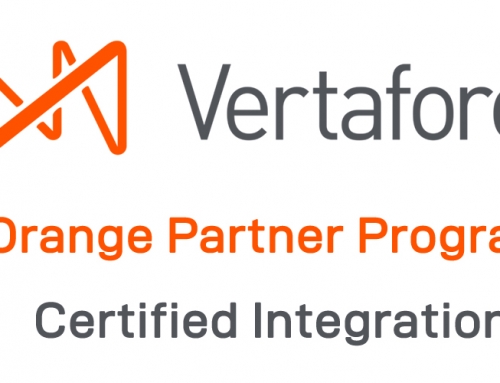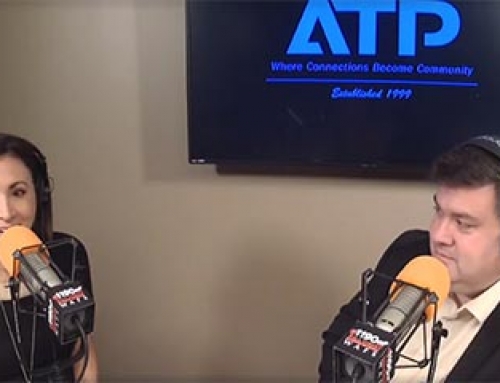Can my insurance agency legally record phone calls?
Call recording is a powerful phone-system feature that lowers an agency’s E&O exposure and allows for more effective coaching of employees. Call recording is also subject to federal and state wiretapping and eavesdropping statutes, so insurance agents must educate themselves on the laws.
If you want to play it safe without reading further, obtain explicit consent from all parties involved before recording any calls. For the details, keep reading.
Federal Law: United States federal law prohibits recording a phone call unless at least one of the parties consents to the recording. If you are an active participant in the call and want to record it, that counts for one-party consent per federal law. See 18 U.S.C. 2511(2)(d).
State Laws: Every state except Vermont has its own law about recording phone calls. Some of these laws are stricter than the federal law, and therefore, supersede it. See below for the consent requirements and statutory citations for each jurisdiction.
The strictest laws require every party to consent. This “two-party” or “all parties” consent is mandatory in twelve states plus Puerto Rico. These states are California, Connecticut, Florida, Louisiana, Maryland, Massachusetts, Michigan, Montana, Nevada, New Hampshire, Pennsylvania, and Washington.
For the other states and the District of Columbia, “one-party consent” is sufficient for legally recording phone calls.
Many insurance agents ask, “What if the call occurs between people in different states?” Although some experts say the law of the state in which the recording device is located will apply, the safest answer is to follow whichever state’s recording law is strictest (or federal law in the case of Vermont).
How do I obtain consent to record?
In “one-party” jurisdictions, you count as the “one party” as long as you are an active participant in the call.
In “all-party” jurisdictions, a verbal recording notification at the beginning of the call is usually sufficient to imply consent.
Business Exception: Federal law (and some state laws) grant a “business exemption” to allow employers to record calls on phones they provide to employees. In general, it is legal for employers to monitor business-related telephone calls to and from their own premises—for example, to evaluate the quality of customer service.
Penalties: Breaking the laws regarding call monitoring can expose your insurance agency to the risk of criminal prosecution and also potentially give an injured party a civil claim for money damages against you. Perhaps even worse for insurance agents, calls recorded without proper consent may not be admissible as evidence in E&O claims, so be sure to obtain permission appropriately for your jurisdiction.
State by State Consent Requirements for Call Recordings
| Jurisdiction | Consent Required | Statutory Citation |
| Federal | One party | 18 U.S.C. § 2511. |
| Alabama | One party | Ala. Code § 13A-11-30. |
| Alaska | One party | Alaska Stat. § 42.20.310(a)(1) |
| Arizona | One party | ARS § 13-30121(9) |
| Arkansas | One party | Ark. Stat. § 5-60-120(a) |
| California | Two party consent if communication is confidential1 | Cal. Pen. Code § 632(a) |
| Colorado | One party | CRS 18-9-304(1) |
| Connecticut | All parties | Conn. Gen. Stat. § 52-570d(a). |
| Delaware | One party | 11 Del. C. § 2402(c)(4) |
| D.C. | One party | D.C. Code § 23-542(b)(3) |
| Florida | Two party consent with business exemption | Fla. Stat. § 934.03(2)(d) |
| Georgia | One party | O.C.G.A § 16-11-66(a) |
| Hawaii | One party | HRS Stat. § 803-42(b)(3)(A) |
| Idaho | One party | Idaho Code § 18-6702(d). |
| Illinois | One party | 720 ILCS 5/14-3(j) |
| Indiana | One party | Indiana Code Ann. § 35-33.5-1-5 |
| Iowa | One party | Iowa Code § 808B.2(2)(c) |
| Kansas | One party | K.S.A. § 21-4001(a)(3) |
| Kentucky | One party | KY Rev. Stat. § 526.010. |
| Louisiana | Two party | La. Gen. Ord. R-27021 V.A.6 |
| Maine | One party | 15 M.R.S. § 709(4) |
| Maryland | Two party consent with business exemption | Md. Courts & Jud. Proceedings Code Ann. § 10-402(3) |
| Massachusetts | Two party consent with business exemption | Mass. Ann. Laws Ch. 272 § 99. |
| Michigan | All parties | Mich Code 750.539c 2 |
| Minnesota | One party | Minn. Stat. § 626A.02, subdiv. 2(d) |
| Mississippi | One party | Miss. Code Ann. § 41-29-531 |
| Missouri | One party | Mo. Stat. § 542.402(2)(3) |
| Montana | All parties | Mont. Code § 45-8-213(1)(c) |
| Nebraska | One party | R.R.S. Neb. § 86-290(2)(c) |
| Nevada | Two party | N.R.S. Ann. § 200.620(1)(a) |
| New Hampshire | Two party consent with business exemption | New Hampshire Stat. § 570-A:1(IV) |
| New Jersey | One party | N.J. Stat. § 2A:156A-4(d) |
| New Mexico | One party | N.M. Stat. Ann. § 30-12-1(C). |
| New York | One party | N.Y. CLS CPL § 700.05. |
| North Carolina | One party | N.C. Gen. Stat. § 15A-287(a)(1) |
| North Dakota | One party | N.D. Cent. Ann. § 12.1-15-02(3)(c) |
| Ohio | One party | ORC Ann. § 2933.52(B)(4) |
| Oklahoma | One party | 13 Okl. St. § 176.4(5) |
| Oregon | One party | ORS § 165.540(1)(a) |
| Pennsylvania | Two party consent with business exemption | 18 Pa. C.S. § 5704(15). |
| Puerto Rico | Two party | 33 L.P.R.A. § 2160 |
| Rhode Island | One party | R.I. Gen. Laws § 11-35-21(c)(3) |
| South Carolina | One party | South Carolina Stat. § 17-30-30(c) |
| South Dakota | One party | S.D. Codified Laws § 23A-35A-20(2) |
| Tennessee | One party | Tenn. Code Ann. § 39-13-601(b)(5) |
| Texas | One party | Tx. Penal Code § 16.02. |
| Utah | One party | Utah Code § 77-23a-4(7)(b) |
| Vermont | No State Law | N/A |
| Virginia | One party | Va. Code Ann. § 19.2-62(B)(2) |
| Washington | Two party consent if communication is private. | Rev. Code Wash. Stat. § 9.73.030(1)(a) |
| West Virginia | One party | W. Va. Code § 62-1D-3(c) |
| Wisconsin | One party | Wis. Stat. § 968.31(2)(c) |
| Wyoming | One party | Wyo. Stat. § 7-3-702(b)(iv). |
| 1 “Confidential communication” includes any communication in any circumstance in which the parties may reasonably expect that the communication not be overheard or recorded. Cal. Pen. Code § 632(c). Further, a California court has “held that calls made by a caller located outside the state, in this case Georgia, are still subject to California law because the principal purpose of that law is “to protect the privacy of confidential communications of California residents while they are in California.” Kearney v. Salomon Smith Barney, 2006 Cal. LEXIS 8362, at *52-53 (Cal. 2006). | ||
| 2 See Sullivan v. Gray, 117 Mich. App. 476 (1982) for interpretation of statute. | ||
Legal Disclosure: The Kotter Group is committed to complying with all applicable laws and regulations and expects its clients to do the same. While The Kotter Group cannot manage compliance for its clients, we have provided this short summary as a push in the right direction. Clients should review all compliance decisions with their own legal counsel to ensure the services are used only in full compliance. This guide is for informational purposes only and not for the purpose of providing legal advice.






